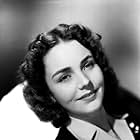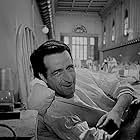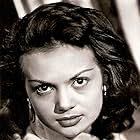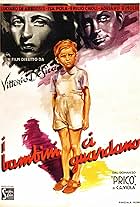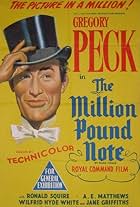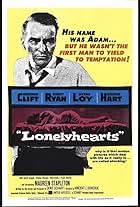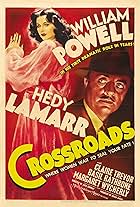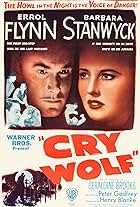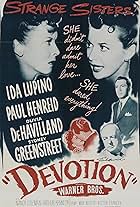VALUTAZIONE IMDb
6,2/10
3239
LA TUA VALUTAZIONE
Aggiungi una trama nella tua linguaPrior to leaving by train for Paris, a married American woman tries to break off her affair with a young Italian in Rome's Stazione Termini.Prior to leaving by train for Paris, a married American woman tries to break off her affair with a young Italian in Rome's Stazione Termini.Prior to leaving by train for Paris, a married American woman tries to break off her affair with a young Italian in Rome's Stazione Termini.
- Candidato a 1 Oscar
- 2 candidature totali
Richard Beymer
- Paul Stevens
- (as Dick Beymer)
Gino Anglani
- Bit part
- (non citato nei titoli originali)
Bill Barker
- Bit part
- (non citato nei titoli originali)
Oscar Blando
- Railroad worker
- (non citato nei titoli originali)
Mariolina Bovo
- Blonde girl in train
- (non citato nei titoli originali)
Nando Bruno
- Railroad worker
- (non citato nei titoli originali)
Memmo Carotenuto
- Venturini - the thief
- (non citato nei titoli originali)
Maria Pia Casilio
- Young bride from Abruzzo
- (non citato nei titoli originali)
Aristide Catoni
- Priest
- (non citato nei titoli originali)
Giovanni Corporale
- Bit part
- (non citato nei titoli originali)
Pasquale De Filippo
- L'impiegato della biglittera
- (non citato nei titoli originali)
Claudio Del Pino
- Bit part
- (non citato nei titoli originali)
Ciro Di Castro
- Bit part
- (non citato nei titoli originali)
Charles Fawcett
- Il signore triste all'ufficio postale
- (non citato nei titoli originali)
Trama
Lo sapevi?
- QuizUpon completion of filming, Jennifer Jones gave Montgomery Clift a Gucci leather briefcase. The clasp on it didn't work, unfortunately. Clift told his friends "It's beautiful, but it doesn't quite work - how like Jennifer".
- BlooperWhen Mary and Giovanni are seated in the restaurant, the design of the ashtray on their table repeatedly changes from a circular "Pellegrino" one to another that is triangular and branded "Cinzano".
- Citazioni
Mary Forbes: I thought you weren't Italian?
Giovanni Doria: Because my mother comes from America, doesn't make me less Italian. In this country, its the men who count. You American women are much too emancipated.
- Curiosità sui creditiOpening credits prologue: ROME Eternal City of Culture, of Legend . . . and of Love
- Versioni alternativeThe 72 and 63 min. versions are both from Selznick and the only difference is that a 9 min. musical short, Autumn in Rome, filmed by James Wong Howe, and directed by the great art director William Cameron Menzies, in which Patti Page performed two songs inspire; by the film, was tacked on in order to bring the picture up to a standard feature length at 72 min. , when Columbia Pictures released Indiscretion in the U.S. in 1954. This is not a longer edit of the De Sica original. The Film only exists in two versions, the Selznick 63 and the De Sica 89. That short is also included on the Criterion Collection DVD, along with both versions of the film.
- ConnessioniFeatured in Buon compleanno Mr. Grape (1993)
- Colonne sonoreAutumn in Rome
(uncredited)
Written by Paul Weston and Sammy Cahn, from Alessandro Cicognini's score
Sung by Patti Page
Copyright Cromwell Music Inc. (1954)
Recensione in evidenza
Indiscretion of an American Wife (1953)
This is such a contained, focused film, and demands so much of its two actors, every little nuance matters in a kind of exciting dramatic way. The closest thing this compares to, as two lovers or would be lovers talk in a train station, is Brief Encounter (1945), and that's a masterpiece of acting and cinema both.
Here, with Montgomery Clift and Jennifer Jones, it comes close. I found the slowness of it magical, and the filming, in the ultra modern station, very beautiful. If director Vittoria De Sica clearly has a different style than David Lean (though both pile on the romanticism), the effect is still one of longing and loneliness. The weakness here, most of all, is simply the writing, which is so important when two people are sitting around in conversation most of the time.
Oddly, and sadly, it was the producer (Selznick) who got in the way. He was married to Jones at the time, and she was unhappy both during the filming and in her marriage. She also seems to be overacting sometimes--she can be marvelous, and nuance magnified might be exactly what was needed, but it often seems distracting. Clift, for his part, liked De Sica and he did what he could with what he had to work with under the director. It was Selznick who interfered with De Sica, and who altered the script using a series of screenwriters, and even though Truman Capote was one of them, the whole thing was hampered.
The fact it is still a marvelous film is something to wonder at. Flawed, yes, but short and intense and it has a special feeling that Hollywood (and British counterparts) were unable to pull off. The whole atmosphere and mood are enough alone to make it worthwhile.
I saw the short version, and I think it's probably plenty, but if you find the original, with 20 minutes extra, and you like this one, give it a try.
This is such a contained, focused film, and demands so much of its two actors, every little nuance matters in a kind of exciting dramatic way. The closest thing this compares to, as two lovers or would be lovers talk in a train station, is Brief Encounter (1945), and that's a masterpiece of acting and cinema both.
Here, with Montgomery Clift and Jennifer Jones, it comes close. I found the slowness of it magical, and the filming, in the ultra modern station, very beautiful. If director Vittoria De Sica clearly has a different style than David Lean (though both pile on the romanticism), the effect is still one of longing and loneliness. The weakness here, most of all, is simply the writing, which is so important when two people are sitting around in conversation most of the time.
Oddly, and sadly, it was the producer (Selznick) who got in the way. He was married to Jones at the time, and she was unhappy both during the filming and in her marriage. She also seems to be overacting sometimes--she can be marvelous, and nuance magnified might be exactly what was needed, but it often seems distracting. Clift, for his part, liked De Sica and he did what he could with what he had to work with under the director. It was Selznick who interfered with De Sica, and who altered the script using a series of screenwriters, and even though Truman Capote was one of them, the whole thing was hampered.
The fact it is still a marvelous film is something to wonder at. Flawed, yes, but short and intense and it has a special feeling that Hollywood (and British counterparts) were unable to pull off. The whole atmosphere and mood are enough alone to make it worthwhile.
I saw the short version, and I think it's probably plenty, but if you find the original, with 20 minutes extra, and you like this one, give it a try.
- secondtake
- 3 ago 2010
- Permalink
I più visti
Accedi per valutare e creare un elenco di titoli salvati per ottenere consigli personalizzati
- How long is Terminal Station?Powered by Alexa
Dettagli
- Data di uscita
- Paesi di origine
- Lingue
- Celebre anche come
- Terminal Station
- Luoghi delle riprese
- Aziende produttrici
- Vedi altri crediti dell’azienda su IMDbPro
- Tempo di esecuzione1 ora 30 minuti
- Colore
- Proporzioni
- 1.37 : 1
Contribuisci a questa pagina
Suggerisci una modifica o aggiungi i contenuti mancanti

Divario superiore
By what name was Stazione Termini (1953) officially released in India in English?
Rispondi









